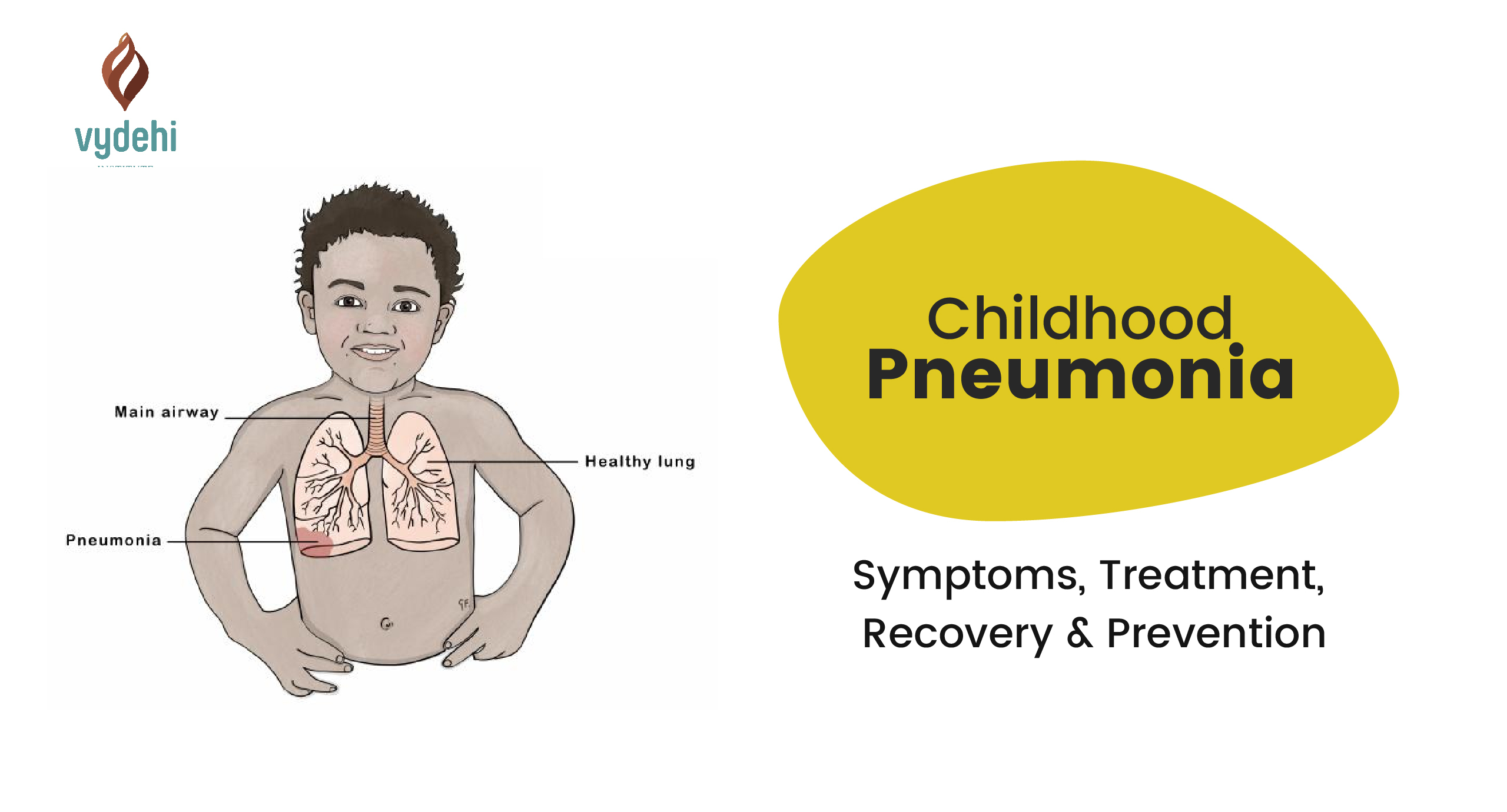

Pneumonia remains one of the leading causes of illness and hospitalization among children worldwide. It is a serious lung infection that causes inflammation in one or both lungs, making it difficult for a child to breathe. Early detection and timely treatment are crucial for preventing complications and ensuring a full recovery.
At Vydehi Hospital, our Pediatric Department provides comprehensive diagnosis, treatment, and preventive care for childhood pneumonia through expert pediatricians, advanced diagnostics, and world-class vaccination facilities.
Childhood pneumonia is an infection that inflames the air sacs (alveoli) in the lungs. These air sacs may fill with fluid or pus, leading to symptoms such as cough, fever, and breathing difficulty. Pneumonia can be caused by:
Pneumonia in children is generally classified as:
Common symptoms include:
Infants and younger children may also show signs such as poor feeding, irritability, or lethargy.
Pneumonia progresses through several stages:
Recognizing symptoms early helps prevent progression to the severe stage.
Seek immediate medical attention if your child shows:
These are warning signs of severe pneumonia and require urgent hospitalization.
Treatment depends on the cause and severity of infection:
In moderate to severe cases, hospital stay may be required for:
At Vydehi Hospital, our Pediatric Intensive Care Unit (PICU) ensures round-the-clock monitoring and care for children with pneumonia.
The recovery time varies depending on the infection type:
Most children recover completely with no lasting effects. However, in rare cases, untreated or recurrent pneumonia may lead to:
Early diagnosis and follow-up with a pediatrician can prevent such outcomes.
The pneumococcal conjugate vaccine (PCV) and Haemophilus influenzae type B (Hib) vaccine play a vital role in preventing pneumonia.
At Vydehi Hospital, these are part of the childhood immunization schedule, including:
Regular handwashing, clean surroundings, and avoiding exposure to smoke can significantly reduce the risk.
Boosts immunity in infants and lowers infection risk.
A healthy diet rich in vitamins A, C, and E helps strengthen the immune system.
Childhood pneumonia can be serious but is preventable and treatable with timely care.
At Vydehi Hospital, our expert pediatricians, advanced diagnostics, and comprehensive vaccination program ensure your child receives the best protection and recovery support.
Early consultation and vaccination remain the best defense against this common yet dangerous infection.

 Emergency Number
Emergency Number